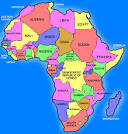GUEST COLUMN
Molly Elgin-Cossart, senior fellow at the New York University Center on International Cooperation, reflects on lessons learned from the United Nations High-Level Panel on the Post-2015 Development Agenda.
The recent climate negotiations in Warsaw made faltering steps towards a possible 2015 agreement. Trade talks in Bali face collapse. As global negotiations on trade, climate and development reach a crescendo between now and 2015, success or failure to reach agreement will be seen as signals of the future of multilateralism itself.
Yet these talks remain fraught with complexity and technical and political disagreements that have considerable potential to derail agreement. As former chief of staff for the Secretariat of the High Level Panel on the Post-2015 Development Agenda, I know firsthand how difficult it will be for these groups to arrive at consensus on the world's most contentious issues – and how besieged they will feel by the demands of governments and stakeholders from around the world.
A number of lessons we learned from the panel could improve the prospects for consensus and ability to put forward recommendations that effectively address the challenges the world will face in the coming decades.
Here are a few critical actions:
1. Be relevant to a global audience.
The High-Level Panel wanted to write a report for the larger public, to convey that this is truly a global and universal agenda. Practically, this meant building in diverse perspectives, avoiding UN jargon and dedicated effort to extensive global outreach.
The panel was remarkably diverse – most members hailed from middle income countries, but there was substantial representation from least developed countries and high income countries, with members from government, civil society, academia, and the private sector. It was the first panel in UN history to have equal representation of men and women.
The extensive public consultation process went even further, making the panel's work reflective of – and relevant to – a broader global audience. The panel report also became the first UN report in history to make versions available for those living with disabilities, with braille, audio, and large-print versions, in addition to translations in all six official languages of the UN as well as Bahasa, and a digital version of the report.
Ultimately, the success of the world's next development agenda will depend upon whether people around the world are inspired to champion it.
2. Craft a narrative first.
Given a limited timeline, there was a desire to move ahead quickly. But crafting a compelling narrative is the central plank of any agenda.
Without it, things degenerate into a list. Creating shared understandings and building common language is crucial to fostering genuine discussion and better decision-making – and inspiring people to champion the recommendations that result.
3. Don't be afraid to have real conversations.
It is tempting to believe that political processes are linear, but the reality is more complicated and defies straightforward explanation.
Personalities matter – good ideas are only as powerful as the coalitions built to support the ideas, and building coalitions with many different perspectives is challenging. To build coalitions requires a solid understanding of different objectives and constraints, the space to engage in real conversations and to propose innovative solutions.
Too many international meetings become an opportunity to read from prepared statements in turn, without listening or interacting to question, support or challenge. And what is not said in open discussions is just as important as what is said. For controversial issues, official positions and prepared statements will never capture the full picture.
Space for open and honest conversations with the freedom to challenge platitudes and explore complexities – and often, unanswered questions – is essential.
4. Evidence is crucial, but so is a healthy dose of political reality.
The High Level Panel report is – at the UN Secretary-General's instruction – grounded in evidence. The tension between evidence and generating a compelling political narrative can create trade-offs, but balancing both is vital. Without an empirical spine, the agenda is likely to be laden with an overabundance of demands, which will lead to an untenable diffusion of efforts. But lacking solid grounding in political realities, the agenda will fail.
5. Be realistic.
One panel member, overwhelmed by a laundry list of demands from civil society representatives finally said: "No, we can't promise you all of these things! All I can promise you is that we will disappoint you. If this is the standard you are setting, then we are bound to fail." This honest moment did what so many post-2015 conversations fail to do: it interjected a sense of reality. Though the inclination is often to say what people want to hear, when you are tasked with decision-making, that mode of engagement just doesn't work. Shaping a more realistic conversation with stakeholders was essential to the reception and success of the report.
6. Leadership is making difficult decisions.
When it came to the final days, the panel co-chairs made the very last and most difficult decisions regarding the content of the report (based upon input from panel members, of course.) Such decisions are rarely easy, but the willingness to stand firm on tough issues is critical.
Otherwise, concrete recommendations will never be made.
A version of this column has also been published by Global Dashboard.


